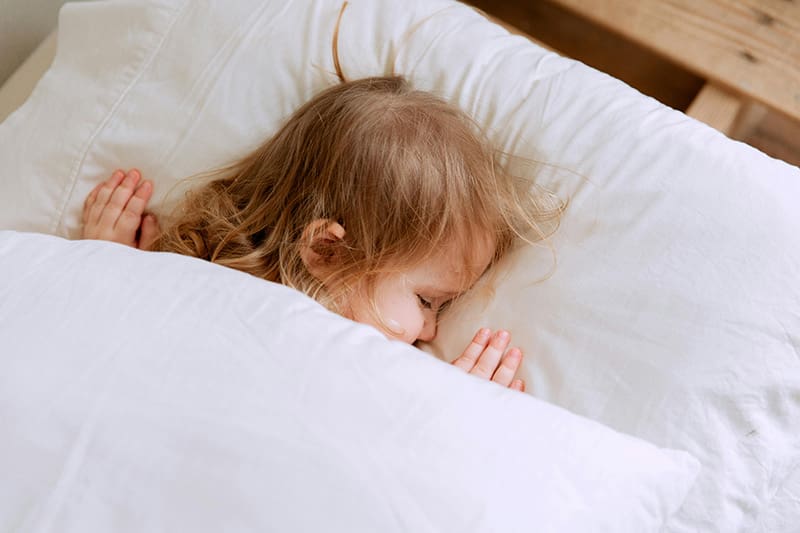A number of studies have identified that children with developmental disabilities like autism, Down syndrome, and Global Developmental Delay struggle with sleep challenges more often than children who are typically-developing. Before seeking professional help, there are a number of strategies you can try to help your child sleep more consistently and soundly at night.
Where do I start in helping my child sleep?
Children and especially children with disabilities thrive on consistency and routine. When the same set of steps happens every night, it can create a pattern that gets the body ready for sleep. Some experts believe that a set of steps with a written or symbol-supported bedtime schedule is most effective. See at right for an example of a visual schedule with checkboxes. This can be laminated to be used again and again.
What activities can help my child calm down before bed?
A 2018 study surveying families of children with developmental disabilities concluded that children exposed to less screen-time had longer sleep durations. You can limit screen time during the day and especially near bedtime by using a guided access timer on an Apple device or parental controls on an android device.
While children should avoid using devices near bedtime, other calming activities can take their place. Children can color, listen to calm music with a weighted blanket, receive a shoulder massage from a caregiver, gather up stuffed animals, meditate with deep breathing, or listen to a bedtime story. Bright lights can be dimmed, curtains can be closed, and warm lights or night lights can come on. You can start using a calmer tone and slower rate of speech as bedtime approaches.
How can I change the bedroom to help my child sleep?
Families should check the child’s bedroom to ensure it is a comforting environment that promotes healthy sleep patterns. Observe if there are blankets that always get kicked off the bed in the night and replace them with a different texture or weight. If airplane, traffic, train, or bug noise is common in your area, try using a sound machine in your child’s room. See if regulating the temperature with a heater or fan makes a difference. Play with light by keeping the door open a crack, using blackout curtains, or a night light. You can use a calendar to track the small changes you make to see if they correlate with more or fewer sleep disturbances.
What Clinicians Can Help My Child With Sleep?
Clinicians including BCBAs, Pediatric Psychologists, and Pediatricians with sleep disorder specializations can help find sleep solutions for your family. This network of core clinicians can help determine if these behavior management strategies are enough to support your child.
Beyond this, they may recommend a formal sleep study, a pulmonologist if sleep apnea is suspected, or a child psychiatrist if they think medication may be required.
In the Chicagoland area, The Goldman Center’s psychologists can provide an evaluation and connect you with local resources in your area if your child’s sleep challenges are associated with psychological needs. Additionally, consider exploring resources provided by Lurie Children’s Pediatric Sleep Center.









